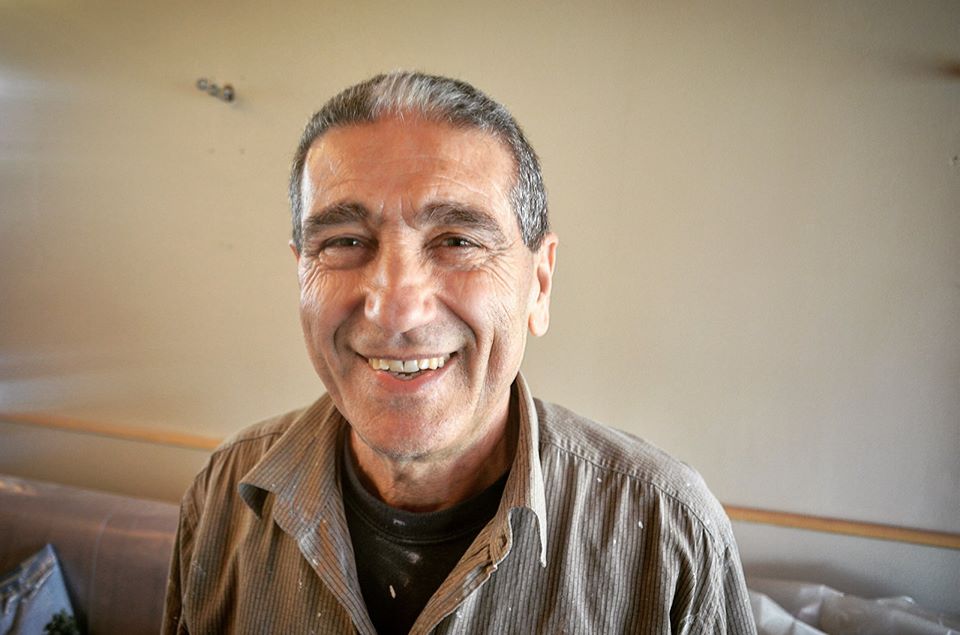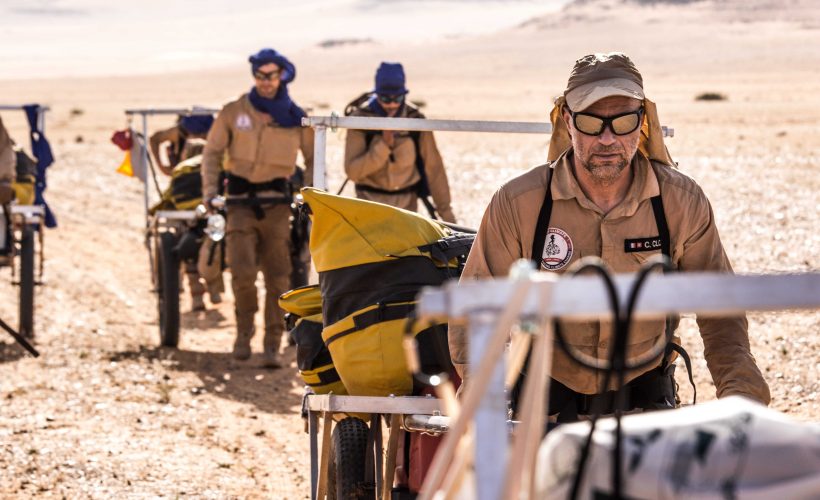Tech & Business
5.20.2020
Ibrahim Karout, the Syrian who spreads urban beekeeping in Paris

In 20 years, the mortality rate of bees has increased by 30%. A plague for biodiversity that Ibrahim Karout, a Syrian beekeeper living in Paris, is trying to curb by training young refugees on his profession.
Ibrahim Karout is surely the busiest beekeeper in Paris. Between working the beehives of the Espero association in the north of Paris, those of the Institute of the Arab world, and many others, his small business hasn’t been hit by the crisis, even in times of the coronavirus. In fact, the bees need him now, more than ever. His passion for bees traces back to his childhood in Syria, which he now transfers to France, by training young refugees and asylum seekers in the apiculturist profession.
A family business
Beekeeping in urban areas has greatly developed in recent years, an urgency for the protection of biodiversity, demonstrated by the surge of associations promoting urban beehives, such as happyculteurs, Dardard,or Espero. According to Ibrahim Karout, there are 700 of them in Paris today. For him, the love of bees is first and foremost a family affair, which began nearly 70 years ago in the village of Ayn Halakim in Syria, “Since I was three years old, I’ve had fun with bees and I love to watch them work.” His father, a beekeeper, owned a dozen hives which he played with as a child, a habit so strongly rooted that he still works sometimes without gloves or protective suits.
See also
undefinedYet he left its bees to study electrical engineering at Aleppo University and then worked for several years as an electrical engineer in Damascus. It’s at the end of the 1980s, that he returns to the village to start breeding bees. “In my village, there were a lot of flowers and people lived mainly from silkworm farming. But when the silkworms fell, they had nothing left to earn a living. So my father and I looked for a commercial solution to this problem, and we thought about developing beekeeping to provide a new livelihood for the villagers. I tried it with three hives, and it worked”. A project that quickly turned into a business, and then into a real empire. Karout honey is now distributed all over the Middle East and 80% of the village’s income is currently generated by beekeeping. An activity that does not weaken, despite the circumstances, and which his brother has been taking care of since Ibrahim moved to France at the beginning of the syrien war, “Bees don’t care about the war to pollinate. Even during the war, many young people that I trained from the village, called me to thank me and tell me they were still working.”
Since 2016, he has been training young refugees and asylum seekers as beekeepers for the Espero association, but he is also a trainer at the Paris School of Urban Apiculture, “Contact with bees teaches you a lot. First of all, collective work, because bees work as a group and each one has its role, but also patience. I see a lot of young people arriving at the training a little tense and stressed, but when they go in the garden to work with the bees, they start to breathe. When you work gently and patiently with the bees, you can achieve extraordinary results.”
A threatened profession
He also develops his family business in France, with his daughter and son-in-law, through L’Abeille française, an environmentally friendly honey production company that raises awareness on urban beekeeping. An activity essential to maintain biodiversity and for the development of short circuits, especially during crises such as the epidemic we are currently experiencing, “I asked the Mayor of Paris Anne Hidalgo to plant honey trees on the way to the gardens, which will help to promote pollination and therefore biodiversity, but also beekeepers”.
A beekeeper’s profession which is today threatened by the production of industrial honey (often cut with sugar), sold at a much cheaper price than pure honey, “In France, many beekeepers are leaving their profession because they can no longer make a living out of pure honey in reason of the price competition with industrial honey. However, bees cannot develop on their own, they need manhand. Also, producing pure honey, local and high quality, allows us alimentary independence, which is essential in a situation like the one with coronavirus.”
If the epidemic hasn’t been stopped yet, it hasn’t managed to keep him away from his beloved bees “This epidemic arrived in the spring, the time when there is the most work for us, because we have to prepare everything to develop the colony. But I’ve been given permission to go and help the bees on my own, without an assistant.”
popular

